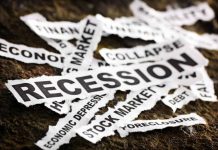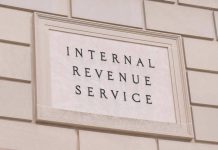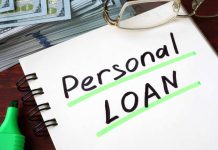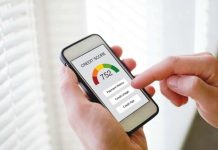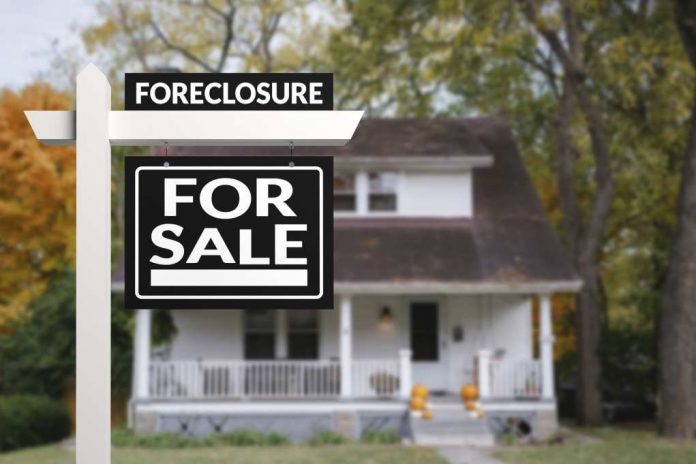
The housing market has a variety of options when it comes to figuring out your next home purchase. One type of home that buyers consider is a foreclosed home. Many people choose this option because foreclosed homes are typically listed at a much more affordable price. While the price may be lower than normal, there is a catch to be aware of. The catch is that you don’t know how well this property has been maintained. There are lots of questions about the idea of buying a foreclosed home and what the outcome might be. But we’re here to add a little clarity to the scenario.
Foreclosure 101
The process of foreclosure happens when a residential property is taken into possession by a bank or a lender. This is because the borrower failed to pay back the debt. Once the borrower leaves the property, the bank then puts the property on the market. This is done in order to cut the losses that resulted from the borrower’s failure to pay back the mortgage.
Usually, foreclosed homes are put up for sale at a reduced price or are even offered at auctions. In most cases, those who did not have the cash to pay back their property loans would most likely not have had the funds to keep up the residence. This is why it is expected that a lot of repairs would have to be done if you decide to buy a foreclosed property.
Why are Foreclosed Homes Less Expensive
A popular reason that potential homebuyers look at these properties is due to their heavily marked-down prices. These reduced prices are drastically less than their comparable counterparts. These properties also can come with additional savings like a reduced down payment, reduced interest rates, and fewer closing costs. Buyers also like these properties because it takes advantage of the fact that the sellers are facing financial difficulty. For example, if a home is in pre-foreclosure, then the sellers are desperate to get the home off of their hands. Instead of the sellers having the upperhand during negotiations, they will most likely be willing to take a lower amount for the home. This is due to them just ultimately trying to lower their own debt.
Buyers may be able to benefit even more if the property actually gets seized from the current owners. That is because these properties usually get sold off quickly since no one wants to deal with them. However, another reason that these homes are less expensive is because of the fact that they are sold as-is. If a person struggles to make mortgage payments, they likely struggle to properly maintain a home. If the property has damage, needs repairs, etc. then that will go into the overall cost of the house. Some of these potential repairs can make the home not worth buying.
Finding a Foreclosed Home
The process of finding a foreclosed home may not be as direct as you think. The best place to begin looking at foreclosed listings is in multiple-listing service (MLS) websites, newspapers, and online searches. When reviewing properties be vigilant for the foreclosure mention. That fact about the property may not be listed in the headline, but instead be located within the property description. You can also contact a local real estate agent to see about any opportunities that they may know about.
Understanding a Foreclosed Listing
When looking at different foreclosed listings you will likely come across five different types of foreclosures.
Pre-Foreclosure
Pre-foreclosure is the beginning of the foreclosure process. This is when the lender files a notice of default on the property and alerts the current borrowers. This all happens before the property gets listed for sale at auction. At the pre-foreclosure stage of the process, the homeowner would receive a letter stating that foreclosure proceedings are going to start. It isn’t uncommon to find property owners trying to make a sale on their residence as a “pre-foreclosure” property. For the buyer, one advantage of looking into pre-foreclosure properties is that the owners will be looking to sell as soon as possible. This is due to them usually wanting to pay back their loan or at least reduce it quickly.
As much as this may sound nice, finding pre-foreclosure homes is easier said than done. If the current homeowners are able to sell the property during this timeframe then they may be able to avoid the foreclosure all together. You will want to look at the properties you are interested in and see if they are listed as being in pre-foreclosure.
Short Sales
When the lender accepts a lesser amount for the property than what is due on a mortgage then that is a short sale. Lenders can agree to a short sale whenever; the borrowers don’t need to be in default (even though this is typically when they agree). However, if a lender agrees to a short sale the current owner will likely need to provide some documentation of a struggle. An example being a loss of employment, or other financial hardships that are similarly difficult to manage. When looking through foreclosed properties these will likely be the ones that are listed as “pending bank approval”.
When you buy a short-sale home, it is pretty similar to the normal homebuying process. However the biggest difference that you will notice is the language in the contracts. The short sale purchase process can also take a bit longer than a normal homebuying process,
Off to the Auction
Once the grace period is up for the borrower to catch up on their mortgage after they’ve been notified, a sheriff’s sale auction will be the next step. This auction’s intended purpose is to get a payment to the lender as soon as possible since the loan is in default. Auctions are held in a variety of settings but you can expect to see them held in front of an official building. You can also typically expect to see signs advertising the auction too!
Auctions can be a great place to find foreclosed homes to buy, but there’s more to the art of the purchase than meets the eye. However you might be at a considerable disadvantage. This is due to the fact that homes sold at auction cannot be viewed beforehand. Knowing the property you want to buy is essential if you want to get an estimate on how much you will end up spending on repairs.
Sometimes you will be able to get a glimpse of what the general condition of the property is. Generally, this is usually not sufficient enough to get a thorough assessment of how much you’ll actually end up needing to spend to get the home back in shape. Nonetheless, do whatever you can to get as much information as possible about the house before forking over the money.
Purchasing Directly from the Bank
When a property cannot get sold at the auction then it goes back to the bank. This is when the property becomes a real-estate owned (REO) property. In the end, you can save yourself all the trouble of going to auctions and buy the property directly from the bank. It should still be noted that since you’re buying a foreclosed property, you will acquire it as-is without a lot of information on its condition or maintenance. Approaching a bank or a mortgage company does give you more time to inspect the property before you finalize the purchase.
Government-Owned Properties
If a property is purchased with a federally backed loan like an FHA loan or VA loan then it is repossessed by the government, not a financial institution. Once the government repossesses these properties they are sold by brokers that are employed federally. If you are interested in buying a government-owned property then you will need to speak to these registered government brokers. Potential homebuyers can review options online on the U.S. Department of Housing and Urban Development (HUD) website.
Disadvantages of Buying a Foreclosed Property
There are some nice advantages of buying these properties like their reduced costs. However, there are also some disadvantages to be aware of as well like:
- Issues with the property
- Hidden expenses
- A slow process
- A competitive market
Issues with the Property
When you buy a property “as-is” you may be taking on a ton of risk. There may be some major repairs that you need to account for. On top of that, there may also be minor repairs that you need to deal with as well. You should also beware of bitter homeowners. If a person is dealing with a foreclosure, they may decide to trash the property before the bank repossesses it. This can leave you cleaning up the mess if you purchase the home.
Hidden Expenses
These properties may have some hidden boobytraps that you need to deal with as well. Delinquencies like liens or back taxes can create more costs for a potentially damaged home. Whatever is owed on the home must be repaid before the buying process can finalize. Usually at auction, the financial institution that is trying to get rid of the property will handle these delinquencies. Regardless, it is important to keep note of them.
A Slow Process
A foreclosure generally means a lot of paperwork and processing time. There can also be some roadblocks that the homebuyer can run into. For example, if the property has a lot of damage, then that can lead to a low home appraisal value. This lowered home appraisal value can cause the homebuyer to have a harder time securing funding. This can make the process take even longer.
A Competitive Market
When there is a home that is listed at a reduced price, it will likely attract more than one buyer. More buyers interested in a property, means more competition. When there is increased competition, that can lead to bidding wars on the property. If a bidding war persists then a property that originally was an attractive deal can quickly turn overpriced.
When submitting bids you may want to consider submitting more than one. By doing this you could potentially gain offers on multiple homes. However, you’ll want to consult with a real estate attorney first, to make sure there are no legal drawbacks in your state. It’s also important to remember that multiple bids don’t guarantee a home, and it can be discouraging if another homebuyer offers a higher bid. But instead of feeling down, keep checking on foreclosed properties that may get put up for sale and snatch the highest bidding spot on that one!
Overall
A foreclosed property can be a great purchase. These homes can be much cheaper than usual run of the mill homes. Who wouldn’t want that? But like most things there are pros and cons with this type of property. So it’s important to watch out for:
- Issues with the property
- Hidden expenses
- A slow process
- A competitive market
Foreclosed homes can provide an opportunity for a homebuyer to buy a home that they may not normally qualify for. If you’re serious about getting one, do your homework. It’s a good idea to get help from someone who knows about real estate. With the right advice and patience, you might just find a great deal!






